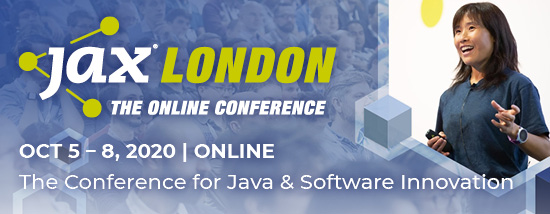A research study by The National Center for Women & Information Technology showed that “gender diversity has specific benefits in technology settings,” which could explain why tech companies have started to invest in initiatives that aim to boost the number of female applicants, recruit them in a more effective way, retain them for longer, and give them the opportunity to advance. But is it enough?
Two years ago, we launched a diversity series aimed at bringing the most inspirational and powerful women in the tech scene to your attention. Today, we’d like you to meet Sigal Shaked, Co-Founder and CTO, Datomize.
Today’s Women in Tech: Sigal Shaked, Co-Founder and CTO, Datomize
 With a PhD in software and systems engineering, Sigal Shaked has more than 15 years-experience working as a researcher and implementer of enterprise data solutions. Datomize, founded last year based on her research and patent-pending technology, provides organizations with the data they need to fuel machine learning models used to detect fraud, limit risk, provide hyper-personalized offers and more.
With a PhD in software and systems engineering, Sigal Shaked has more than 15 years-experience working as a researcher and implementer of enterprise data solutions. Datomize, founded last year based on her research and patent-pending technology, provides organizations with the data they need to fuel machine learning models used to detect fraud, limit risk, provide hyper-personalized offers and more.
Successfully generating three million data sets in three hours for a leading global bank, Datomize has the ability to generate complex data structures that are fully compliant and mirror real customer data, with the scale and speed global organizations need. Sigal is a role model for women pioneering new innovations and taking the lead as CTO to define the future of new disruptive technologies that can drive real value for businesses in today’s data-driven world.
When did you become interested in technology?
I think it was around the age 19, when I was an officer in the army. After a long year of doing manual work-arounds to overcome the limits of the application I used routinely, I found myself writing a letter asking for a better application.
Later on, at the age of 22, I debated which academic degree to pursue (architecture, neuroscience or software engineering). When I read the syllabus of the department of information systems engineering, I realized that I had written a design requirements doc, and I loved it. This is what led me to choose a technology path, and since then I’m just moving wherever the roads leads me, with some occasional junctions and U-turns.
How did you end up in your career path?
My university came up with a new program of direct-to-master degree track. This gave me a convenient excuse to postpone the decision to choose a career path, since I still had no idea what I wanted to do when I grow up (spoiler: I can still say the same thing today). My thesis research made me fall in love with AI, and from that moment on, although I still wasn’t absolutely sure what I wanted to do, I knew that it would always be AI-related.
Did you receive support from your family and friends? Do you have a role model?
As a kid, education was always a very high priority for my family, managed closely by my mother, with clear KPIs (grades should be over 95, with a clear preference for scientific professions). Only when I finished my master’s degree and entered the workforce was I able to set myself free from the burden of these KPIs, embedded so deeply in my mind. My childhood friends also played an important role by seeing me as “the genius in the group, so confident that I could “do it all”, that they managed to partially convince me.
I have seen many good and bad role models amongst my managers and colleagues. The good ones are not necessarily the ones I will try to become, as I can’t be something different from what I inherently am, but they are the ones I will call on to consult with when I face a new challenge. The bad role models have had an important impact as well on my success. They help make me more sensitive to others and draw my own red lines of limits I will not cross. No matter how much I evolve, I am committed to keeping my basic values and principles.
Did someone ever try to stop you from learning and advancing in your professional life?
Not directly, but different roles I feel have limited me. My recommendation is to avoid positions that do not include an element of learning and growth. Also, when you reach a point in your career when you feel that you are stuck, treading water for too long, that’s a good time to be brave, get out of your comfort zone and make a change in your career.
In terms of timing – I think it was actually easier for me as a woman to return to academic life later on to pursue my PhD studies, as my husband was the main breadwinner.
My thesis research made me fall in love with AI, and from that moment on, although I still wasn’t absolutely sure what I wanted to do, I knew that it would always be AI-related.
A day in Sigal’s life
I’m the CTO and the co-founder of Datomize. We generate synthetic data to fuel AI with high-quality data. As this is a young and growing start-up, my role still changes from one phase of the company to another. At first, I was focused on building the team – interviewing many candidates for the different technology and R&D roles – on meetings to set the architecture we are going to use, many validation sessions with potential clients and writing the initial algorithm’s code.
We have been growing extremely fast – and so today, after only a year since we were first established, my role has become more about managing the team (16 employees), managing the product version, and taking part in many sales and POC sessions to ensure the benefits of what we are doing is communicated in the best possible to the field.
What are you most proud of in your career?
I have had many moments of pride throughout my career, so it is hard to choose. To me, declaring an achievement feels like an end of a journey, while I am still only in the middle. So I would rather not toot my own horn just yet. I will say that I’m proud that today I can handle challenges that I felt were way over my capabilities not long ago.
Why aren’t there more women in tech?
I think that motherhood has its effect in this high-paced and demanding tech industry. I think that the new generation is much more aware of work-life balance as opposed to my generation, and that might help to overcome this difficulty. Once women can develop their careers in this industry without the dilemma of quality time with their children, it will be much more attractive for women to enter this industry and climb to senior tech roles.
Could you name a few challenges (or obstacles) women in tech face?
One obstacle I’ve faced in my journey, is not having the ‘soft skills’ to stand my ground and convince managers that I’m right, when I was absolutely confident that I was. Some men have their own biased opinion regarding the knowledge women can have on technological issues, maybe because they didn’t meet enough women with tech expertise, to enable them to acquire a sense that this woman standing in front of them, despite being female, should be heard.
Another major obstacle is how do I ensure that I keep on giving the same time and energy to my work, as before children came into my life? The workday ends much earlier than you’re used to, forcing you to be up long nights to make up for those hours – leaving you with missing sleeping hours that can have a negative impact on your ability to concentrate. Don’t get me wrong, my two kids are by far my best creation, and will always be, but it is a constant challenge to balance between and enjoy the two worlds.
Would our world be different if more women worked in STEM?
Sure, I believe that diversity, creativity, and innovation go together.
Men and women often come with different viewpoints and perspectives, so that together they can build better things. It will also keep the culture of the organization much healthier; working alongside someone who is very different from us keeps us respectful and belonging to the same group at work bridges the diverse social groups as we learn to accept a culture we didn’t actually know before.
Working alongside someone who is very different from us keeps us respectful and belonging to the same group at work bridges the diverse social groups as we learn to accept a culture we didn’t actually know before.
The discussion about diversity is gaining momentum. How long will it take to see results from the current debate?
It takes time for change to happen. I think decision-makers have a very important role here, and they should dictate diversity awareness from day one. It will be much more difficult to change large groups.
Even at Datomize, where we are only 16 employees, it is already so hard to balance the number of men and women. It would have been much simpler had we put our closer attention to this balance from the first recruitments.
What advice (and tips) would you give to women who want a tech career?
I highly recommend utilizing your first years in the industry wisely; Choose roles that enable you to learn and absorb as much as possible – don’t be lazy or spoiled, do whatever the organization needs, this will lead to great opportunities, as well as to discover your true passion. This is true for both genders, but as women, as we are more likely to have time limitations when we begin to grow our family, better to leverage these initial years as much as possible.
The tech industry is fascinating, and there are so many different roles. Some require more technical depth, and others a more customer-oriented approach, so I truly believe every woman can find her place in the high-tech world.
More Women in Tech:
- Women in Tech: Liudmyla Taranenko, AI engineer at MobiDev
- Women in Tech: Shani Gale, Director of Product Management at Snyk
- Women in Tech: Marie Godfrey, SVP of Products at Flexera
- Women in Tech: Hiral Patel, Founding engineer at Diamanti
- Women in Tech: Christin Matt, Senior Game Designer
For even more Women in Tech, click here
The post Women in Tech: “Diversity, creativity, and innovation go together.” appeared first on JAXenter.
Source : JAXenter
























